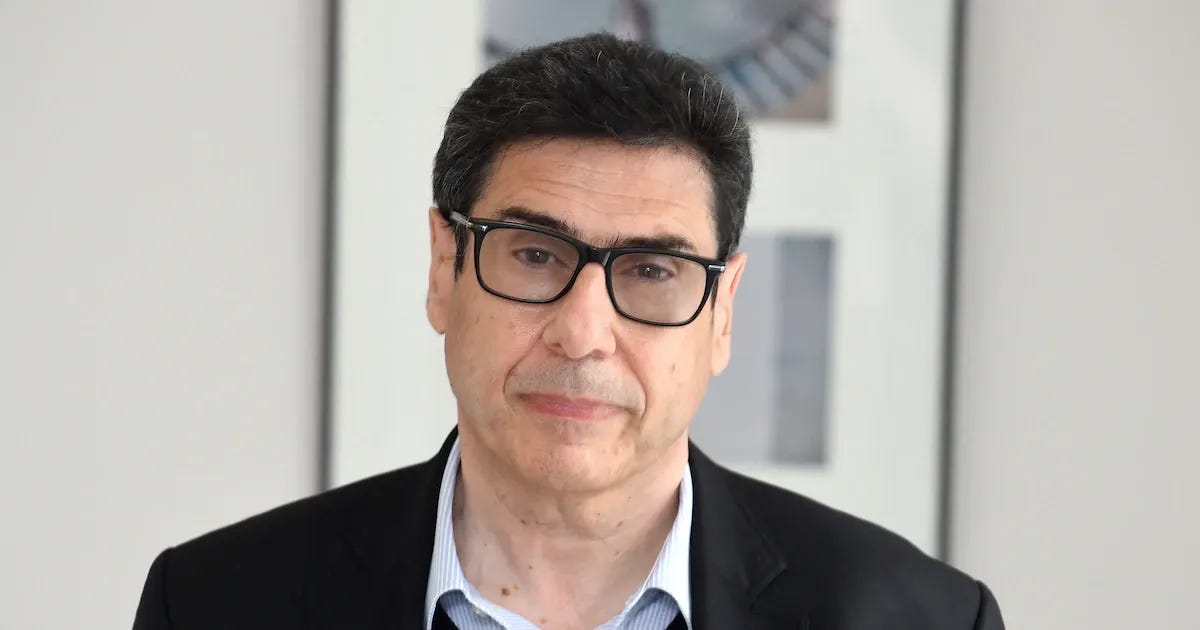[ Editorial ] The Nobel Prize for Morons
Show us a Nobel laureate in economics from the past forty years who hasn’t been spectacularly wrong. Those oracles of the market are fools. Every truly distinguished economist knows it.
Philippe Aghion, Macron’s favorite economist — the man with professorships at the Collège de France, INSEAD, and the London School of Economics — has just bagged the Nobel Prize in Economics. Cue the media chorus: innovation, innovation, in-no-va-tion! It’s the new secular hymn of the elite.
Aghion even sneers, “In Raphaël Zucman’s world, there is no in-no-va-tion.”
Fair enough. Zucman, another economist lost in his own equations, can be a moron too. But at least let’s be honest: when economists start chanting buzzwords like monks at vespers, it’s not knowledge they’re spreading — it’s noise.
A reader offers a useful correction: the Nobel Prize in Economics doesn’t actually exist. It never did. It’s the Bank of Sweden Prize in Economic Sciences in Memory of Alfred Nobel — a PR stunt by bankers, not a legacy of the inventor of dynamite. Frankly, they might as well rename it the Wallenberg Prize, after the dynasty of financiers who own half of Sweden.
A philosopher, who tend to be less stupid than celebrity economists - even if he strayed through the London School of Economics - has long stated the truth: social sciences aren’t real sciences. Their results can’t be reproduced. This philopher is, of course, Karl Popper, and his idea of the “open society” was promptly hijacked, most notably by George Soros.
Now, enter Philippe Aghion, Macron’s pet economist, freshly decorated with the “Nobel Prize for Idiots.” Sorry, the Nobel Prize in Economics. He shares the honor with Peter Howitt and Joel Mokyr, fellow disciples of Schumpeter, the saint of “creative destruction.”
Aghion helped write Macron’s 2017 program, the one built on “disruption” — that sacred buzzword of the neoliberal catechism. Strip Schumpeter of his nuance, mix in a touch of arrogance, and voilà: Macronism. Destruction masquerading as progress. Aghion tells us not to worry: as long as competition is healthy and the state does its job, the blessings will “trickle down.”
Behold the gospel of “endogenous growth,” supposedly fueled by “in-no-va-tors.” According to Aghion, too much competition kills innovation — but so does too little. A tautology so empty it’s almost art. Marx would have recognized him instantly: an economist of oligopoly, servant of oligarchs, desperate to dodge the law of diminishing returns. Solow? Outdated. Ricardo? Forgotten. The only word left is in-no-va-tion! repeated like a tantrum by people who’ve stopped thinking.
And what does this “innovation” look like in practice? A carefully balanced system of state regulation that regulates just enough to protect the powerful. Aghion’s idea of fairness is ensuring that the right innovators keep their rents while everyone else — the builders, the manufacturers, the people who actually make things — are dismissed as nobodies.
Look around: the “supply-side revolution” that’s been tanking France’s economy since 2012, turbocharged by Macron’s giveaways and “French Tech” subsidies. Hundreds of billions in public money poured into startup theater, clientelism dressed up as strategy. Industrial policy? Just chant the magic word: in-no-va-tion!
Meanwhile, the few genuinely innovative startups — the ones born in public labs after years of real research — are quietly sold off to American giants for pocket change. That’s the real French miracle: socializing the costs, privatizing the glory, and calling it progress.
Take the latest example: Upmen, a Grenoble based startup that built a chip capable of making big data processing twenty times faster. A real breakthrough — and Qualcomm bought it up, with the blessing of the French Ministry of Economy. Why? Because the very officials who signed off on the sale are already eyeing their future careers in finance, where they can finally make “deals” and real money instead of paperwork.
The growth generated by this in-no-va-tion won’t happen in France — it’ll happen abroad. Pathetic, isn’t it? Still, the bankers and corporate lawyers pocketed their share on the way out, and in the end, a few bureaucrats will get their reward: a soft landing in the private sector, complete with fat salaries and comfortable slippers.




